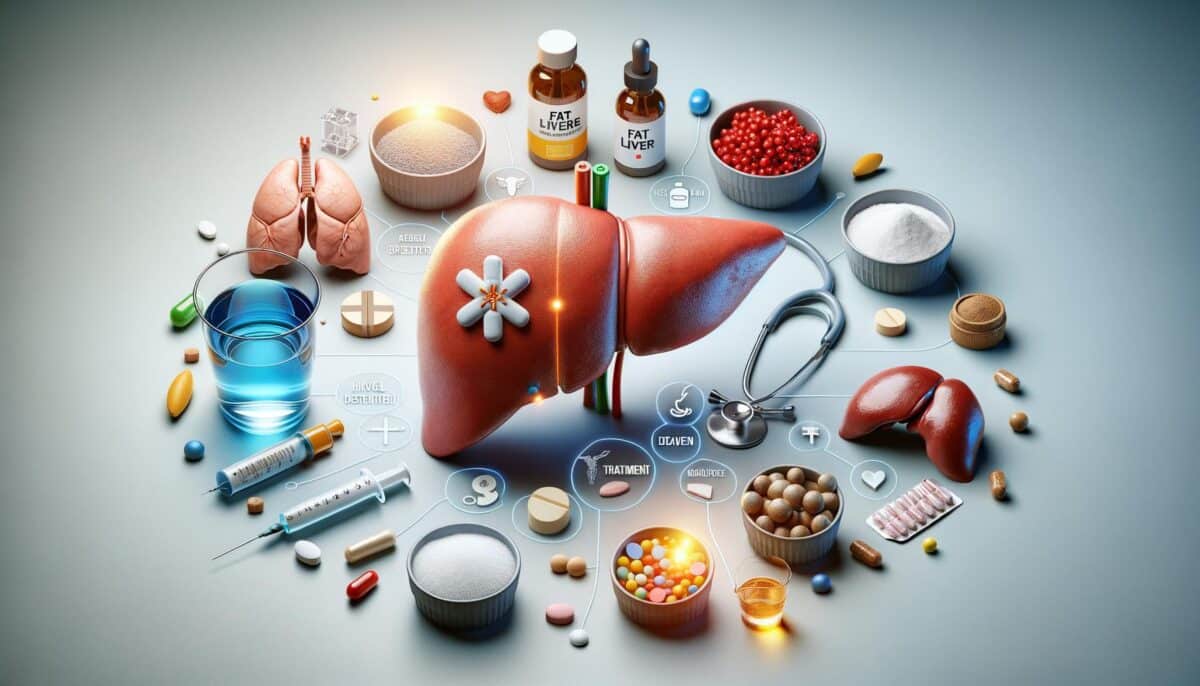What is Fatty Liver Disease?
Fatty liver disease, or hepatic steatosis, is a condition characterized by the accumulation of excess fat in the liver cells. Although having small amounts of fat in the liver is normal, when this fat constitutes more than 5% to 10% of the liver’s weight, it becomes a concern. This condition can lead to liver inflammation, and if left untreated, it may progress to liver damage or more severe liver diseases. There are two primary types of fatty liver disease: Alcoholic Fatty Liver Disease (AFLD) and Nonalcoholic Fatty Liver Disease (NAFLD), each with unique causes but similar symptoms and potential complications.
Early Symptoms and Diagnosis of Fatty Liver
Fatty liver disease often progresses silently with few to no symptoms in its early stages. However, some individuals may experience discomfort or a dull ache in the upper right side of the abdomen. Early diagnosis is crucial as it prevents the progression of the disease. Common methods used to diagnose fatty liver include:
- Blood Tests: To check for elevated liver enzymes, indicative of liver inflammation.
- Imaging Tests: Such as ultrasound, CT scans, or MRIs to detect fat accumulation in the liver.
- Biopsy: In certain cases, a liver biopsy may be performed to confirm diagnosis and assess liver damage severity.
Recognizing early symptoms and having regular medical check-ups can significantly contribute to managing this condition effectively.
Lifestyle Modifications for Managing Fatty Liver
Making certain lifestyle changes is one of the top options for managing fatty liver disease. Adopting a healthy lifestyle can significantly reduce liver fat, improve liver function, and support overall health. Here are some recommended lifestyle modifications:
- Diet: Shift towards a balanced diet rich in fruits, vegetables, whole grains, and lean proteins. Minimize the intake of high sugar, trans fats, and saturated fats.
- Exercise: Engage in regular physical activity. Aim for at least 150 minutes of moderate aerobic exercise per week.
- Weight Management: Ensure maintenance of a healthy weight. Losing around 3% to 5% of body weight can decrease liver fat significantly.
- Avoid Alcohol: Limit alcohol consumption, as it can exacerbate liver damage.
Medical Interventions and Support
While lifestyle changes form the cornerstone of managing fatty liver, some individuals may require medical interventions. Depending on the stage and cause of the disease, doctors may recommend:
- Medications: To control cholesterol, manage diabetes, or treat fatty liver-related complications.
- Vitamin E: In some cases, Vitamin E supplementation is found to be beneficial in reducing liver inflammation.
- Bariatric Surgery: For patients with obesity and severe fatty liver conditions, bariatric surgery may be considered post lifestyle modification trials.
It’s essential to maintain regular follow-up with healthcare providers for personalized treatment approaches and adjustments as needed.
Conclusion
Fatty liver disease is a manageable condition with early diagnosis and appropriate interventions. By paying attention to the early symptoms and diagnosis of fatty liver and adopting healthy lifestyle practices, individuals can significantly improve their liver health. Engaging with healthcare professionals to tailor a personal management plan ensures optimal outcomes and enhances quality of life. Understanding this disease is the first step towards proactive health management and achieving better liver health outcomes.
